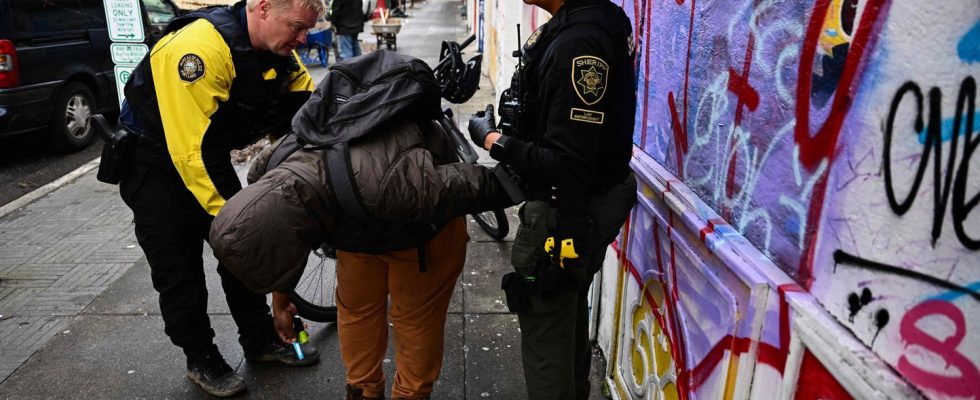Oregon backtracks on drugs. Three years after becoming the first in the United States to decriminalize everything, this state will recriminalize the possession of small quantities of narcotics starting in September.
Tina Kotek, the Democratic governor of this western state, promulgated a law on Monday enacting this backpedaling. As of September 1, possessing hard drugs (fentanyl, heroin, cocaine, ecstasy, etc.) will once again be considered a crime, punishable by imprisonment of up to six months.
An idea for 2021 inspired by Portugal
The text thus puts an end to the decriminalization voted by referendum and applied since the beginning of 2021: users in possession of small quantities of drugs were subject to a simple fine of 100 dollars, while the sale and production remained liable to prosecution.
A pioneer in the United States, this reform caused a lot of noise. The idea was to treat drug users as sick people rather than as delinquents, taking inspiration from Portugal, where decriminalization has been successful for more than twenty years. But enforcement has coincided with the health crisis caused by fentanyl across the United States: fatal overdoses more than tripled in Oregon between 2019 and 2022, mainly because of this deadly opioid, until 50 times more potent than heroin.
Oregon has also been extremely slow to establish the health services needed to accommodate users, making drug use highly visible on the streets. This caused a reversal in public opinion in this state, which was won over to the American left: detractors of decriminalization proclaimed its failure, while many health professionals stressed that the health aspect of the law did not really have any impact. could be put in place.
Strengthen the link between the police and health services
The Drug Policy Alliance, one of the main organizations that campaigned for decriminalization, denounced Tuesday a “harmful step backwards”. “This is a false promise of change that will put people through the criminal legal system, without there being a meaningful link to treatment,” said its president Kassandra Frederique. Decriminalization has limited incarcerations and obstacles to the reintegration of users, she recalled.
Oregon’s new law requires police to continue to prioritize alternatives to criminal prosecution when possible. It also intends to strengthen collaboration between law enforcement and health services. The text covers “a set of measures that promote treatment first, while balancing the need for accountability,” Governor Tina Kotek emphasized in a letter announcing the enactment of the law.

